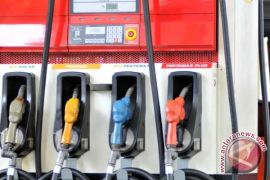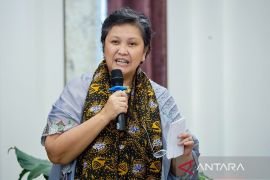This is because, as many have predicted, low-income car owners will likely turn to motorcycles, raising the consumption of premium gasoline which is subsidized by the government. In addition, the relatively affluent car owners will also likely turn to gasoline sold by efficient foreign oil firms.
"The policy will boost motorcycle business and raise its sales by about 5 to 10 percent," Senior Sales Manager of PT Astra Honda Motor (AHM) Sigit Kumala said.
He said that motorcycles would become alternative transportation means for the people amid the bad condition of the country`s public transportation facilities, particularly in big cities.
The government is planning to limit subsidized fuel consumption as of April 1, 2012. Under the new policy, private cars would not be allowed to use subsidized premium gasoline which would only be allocated for public transport and motorcycles.
Private cars will then use non-subsidized pertamax gasoline whose price is about two times higher than premium gasoline. Subsidized premium gasoline is sold at Rp4,500 per liter while pertamax plus 95 is Rp8,850 per liter and pertamax 92 Rp8,600 per liter.
Through the program the government hopes to save 6.21 million kiloliters of premium gasoline so that the premium gasoline quota set in the 2012 state budget at 37.5 million kiloliters would be achieved.
However, the policy will likely boost motorcycle sales and increase their consumption of subsidized gasoline.
Sigit said his company predicted that motorcycle sales would reach 8.4 to 8.6 million units in 2012 or up from 8.043 million units in 2011.
Director of Public Policy Study Center Sofyano Zakaria shared Sigit`s view saying that the government`s new plan would increase the number of motorcyclists. "The government should pay attention to the significant increase in the number of motorcycles in Indonesia," Sofyano Zakaria said.
The increase in the number motorcycles would in turn increase their fuel oil consumption. Data showed that in 2009 there were 52.4 million motorcycles in the country. This number rose to 80 million in 2011.
If one motorcycle consumes one litter of premium gasoline per day this will mean that they will spend some 80 thousand kiloliters per day or about 28.8 million kiloliters per annum.
So, if they take two liters per day, for example, a total of 57.6 million kiloliters must be made available for them. This calculation does not yet include the estimated increase in number of motorcycles by about 5 to 10 percent in 2012.
Taking the figure of 52.4 million motorcycles in 2009, Sofyano Zakaria said: "If the subsidy of each liter of premium gasoline is Rp3,000, these motorcycles will need a total subsidy of Rp56.492 trillion per annum."
Therefore, Sofyano suggested that the government should open its eyes as wide as possible on the increasing number of motorcycles following its decision to limit the use of subsidized fuels by private cars.
"If the government keeps on turning a blind eye to the increasing number of motorcycles and continues to be allow them to use subsidized gasoline, then we need to question its attitude," he said adding that the government should better increase the price of the fuel.
After all, the government itself still seems to have doubts about the success of its plan to reduce subsidized fuel oils consumption. It has expressed pessimism that the 2012 subsidized fuel limitation program will achieve the target of lowering subsidized premium gasoline consumption by 6.21 million kiloliters.
"It will be good if we can achieve 50 percent of the target of lowering subsidized premium gasoline by 6.21 million kiloliters. But we will make a constant effort to achieve 100 percent of the target," Energy and Mineral Resources Minister Jero Wacik said at a working meeting with the House of Representatives (DPR)`s Commission VII here on Monday.
He said the implementation of the program would face many obstacles so that the target would be difficult to achieve.
The target included reduction of subsidized premium gasoline consumption by 5.8 million kiloliters for private four-wheeled vehicles in Java and Bali starting April 1, 2012.
In the meantime, legislator Bambang Wuryanto of the Indonesian Democratic Party of Struggle (PDIP) faction said that the government policy would only benefit foreign oil companies.
"The policy will only benefit foreign oil companies and conversion kit importers," Bambang Wuryanto, said on Monday. The policy would no doubt harm the interests of the community, gasoline station owners and state oil and gas company Pertamina, he said.
If subsidized premium gasoline consumption was limited and the public switched to non-subsidized pertamax gasoline, Pertamina must compete with foreign oil companies which sold pertamax at lower price, he said.
Therefore, PT Pertamina asked the government to issue a policy to protect its non-subsidized pertamax gasoline product. Pertamina`s president director Karen Agustiawan said the protection was needed as a form of the government`s solidarity with the state-owned company.
"The governments of other countries also do it," she said. She said the government must require private companies selling products equal to pertamax to buy from Pertamina.
Only after Pertamina`s supply runs out could they be allowed to buy or import from other parties, she said. Another form of protection needed, she said, was setting the selling price of pertamax produced by Pertamina at a lower level than of other sellers. (*)
Reporter: Andi Abdussalam
Editor: Kunto Wibisono
Copyright © ANTARA 2012






